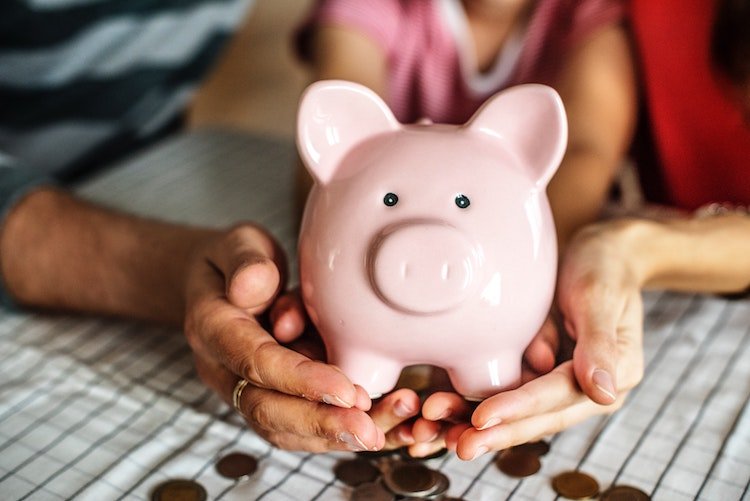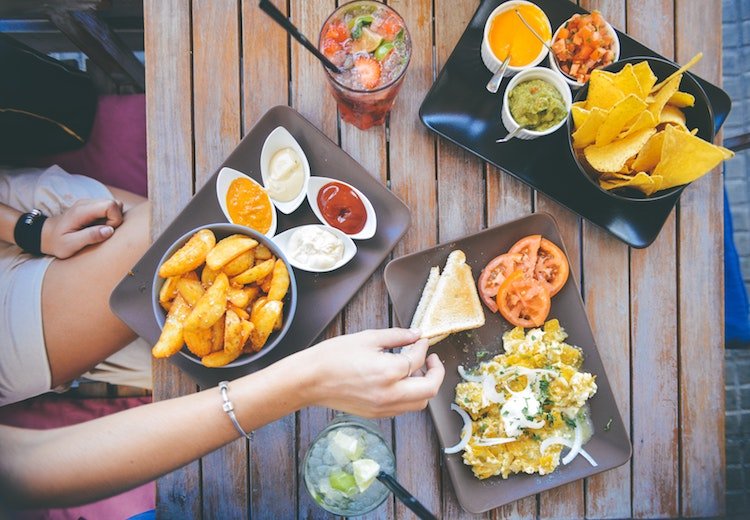Spending money: the psychology
There's a popularly held belief that our interactions with and attitudes towards money are psychologically hard-wired. That we may be a spender or a saver; a conservative or a risk-taker. Indeed, there's convincing evidence to suggest this is precisely the case. Our financial instincts operate within the same fundamental patterns as our impulses to manage other lifestyle essentials.
Bringing home the bacon: do you save or spend money?
Psychologist and professor Glenn D Wilson alludes to this phenomenon with the interesting observation that our behaviour towards money has “commonalities with food, which might suggest an evolutionary origin for our craving [for wealth].” Wilson notes that when our appetite is stimulated by the scent of nearby food our economic instincts become equally hungry. We become more inclined to horde, and less likely to spend money.
Equally, risk-averse individuals may simply be behaving in accordance to built-in traits. A region of the brain known as the insula is active in the processing emotional responses, as well as associating stimuli with previous adverse reactions. Interestingly, individuals with a more active insula have been found to respond to the experience of spending large sums of money in the same way as they would react to pain, or to a disgusting smell.
Wants and needs: ways of spending money
Due to these previously-acknowledged findings, traditional thinking has classed us as spenders or savers, which deduced that our attraction or aversion to spending money was a matter of innate neurological make-up. However, more recent investigations have studied the impact of different forms of spending. In fact, researchers have demonstrated that not all spending is equal.
Indeed, in contrast to decades of research reporting surprisingly weak relationships between consumption and happiness, recent findings suggest that money can increase happiness if it's spent the “right way”, for example, on experiences or other people.
“The state of our personal finances and spending habits plays an active role in determining our overall mental health and our well-being in other areas of life.“
Understanding the different forms of economic activity is a necessary step towards learning how the psychology of money could be affecting our own peace of mind. Indeed, a report by the Department of Psychology at the University of Cambridge sought to identify the psychological impact of qualitative factors within our spending habits, as opposed to simply the amount spent.
Spending money to get happy
Developing this point further, a study by the University of California at Berkeley sought to establish distinct forms of spending. The objective of the study was to learn the psychological impact of each form of spending money. Every transaction divided into one of four expenses:
Spending money: shopping can be split into categories
Firstly, either as 'fixed' or 'variable' outgoings, of which both classes sub-divide into sets that are our 'wants' and our 'needs'. For example, while our 'fixed needs' are all of those outgoings that include the cost of living, such as bills, grocery and transportation, our 'fixed wants' are regular treats that we award ourselves in everyday life. These could include a cup of coffee on the way to work or going to watch a Friday night film. Together, these forms of recurring purchases define our basic standard of living on a monthly basis.
However, data shows that we quickly grow accustomed to these purchases as a new, baseline standard of living. Although reducing these expenses may not make us happier, there's also no marked long-term improvement in our well-being when we make such purchases, either. Instead, 'fixed wants' are more effective psychological rewards when they only occasionally happen, not when they form part of a regular spending habit.
“Recent findings suggest that money can indeed increase happiness if it's spent the 'right way', (for example, on experiences or other people).”
In contrast, 'variable needs' describe the infrequent or one-off purchases that are, nevertheless, mandatory. From travel visas to health insurance; vehicle repairs to items for a child's education. Variable needs are the expenses that motivate the saver in all of us. Our peace of mind relies upon knowing that we have the financial resources to cover the unexpected. There is substantial evidence to suggest that these economic safety nets are among the most vital sources of physical and mental well-being.
To improve our well-being through spending money, it may be more effective to re-establish our habit-forming fixed desires as 'variable wants'. While the saver in us may look at these expenses as frivolous, it's these non-essential, one-off treats that are, in fact, the most efficient forms for improving our mood and mindset. Despite this, these non-recurring purchases typically account for the smallest total outgoing of expenses when taken on an average annual basis.
Spending money on a happier life
Such evidence would suggest that many of us could potentially be enjoying greater peace of mind if we permitted ourselves to spend more of our money. However, there is a caveat: happiness comes from what we spend money on, rather than how much we are spending.
By far the most intriguing discovery from this latest round of studies is the realisation what the psychological impact of spending money does. It can amplify when economic activity matches the individual's unique personality traits and motivations.
An individual who makes purchasing decisions that best suit their personality shows more enjoyment and an increased quality of life, with an increase in personal well-being that is more effective than that observed from other influencers such as the overall amount spent, or even the total level of that individual's income.

Eating out regularly is a 'fixed want', an occasional treat
The results suggest that for each, there are optimal and suboptimal ways to allocate spending money. “Purchases that make one person happy might not do so for another. Finding the right products to maintain and enhance one’s preferred lifestyle could turn out to be as important to well-being as finding the right job, the right neighbourhood, or even the right friends and partners.” (Matz, et al.)
One can conclude that not only does spending money through “retail therapy” work – albeit under the right conditions for the individual – but also that there is, possibly, an efficiency model for the process, too. This improved understanding will form a fascinating starting point for the next generation of behavioural psychologists' studies.
We move towards a reality where individuals are capable of discerning the optimal use of their personal finances. One where identification of products, services and experiences that will help maximise quality of life beyond the restrictions of income or budgetary concerns. ●
Main image shutterstock/Ollyy
 A social sciences graduate with a keen interest in languages, communication, and personal development strategies. Dee loves exercising, being out in nature, and discovering warm and sunny places where she can escape the winter.
A social sciences graduate with a keen interest in languages, communication, and personal development strategies. Dee loves exercising, being out in nature, and discovering warm and sunny places where she can escape the winter.



Join the conversation
You are posting as a guest. If you have an account, sign in now to post with your account.
There are no comments to display.